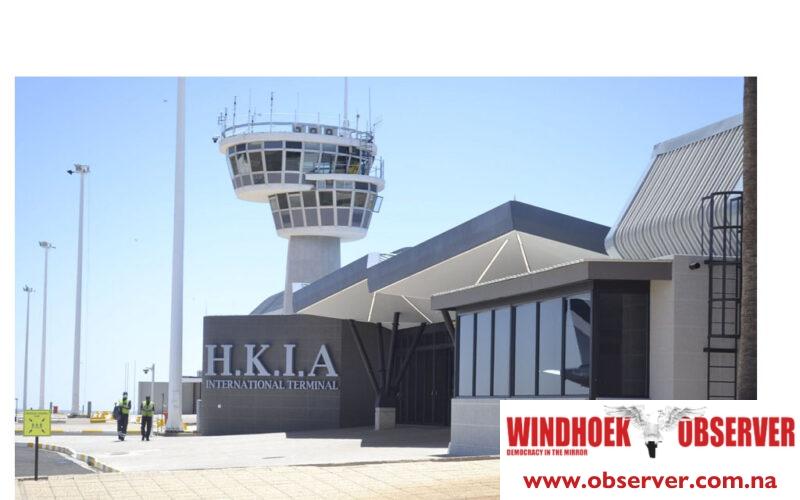Hertta-Maria Amutenja
The Hosea Kutako International Airport (HKIA) faced a bomb threat on January 14, disrupting operations and bringing airport security protocols under scrutiny.
The incident occurred when a 66-year-old passenger on a departing flight claimed, “There could be a bomb on the aircraft, for all we know.
Section 198 (2) C of the Civil Aviation Act states that acts contrary to public safety and order at an airport where a person who, while in an airport, and in a manner contrary to public order or safety at the airport – without justification makes an alarming statement, uses alarming words or behaves in an alarming manner contrary to good order at the airport; commits an offence.
This incident occurred just months after the Namibia Airports Company (NAC) conducted its last full-scale emergency drill at HKIA in May 2024.
The exercise simulated a bomb threat aboard a Fly Namibia aircraft, another inside Terminal 2, and a hostage situation, aimed at assessing the airport’s preparedness and inter-agency coordination.
During the drill, the NAC chief executive officer (CEO), Bisey Uirab, said the exercise was meant to identify issues and close those gaps fast.
“Airports today are the centre of attention and a very effective way of moving around the globe and thus, procedures should be implemented to always make this space safe and secure,” he said.
The Namibian Police spokesperson, Deputy Commissioner Kauna Shikwambi, confirmed that the threat was false after their explosives unit conducted thorough checks.
If found guilty of making the false bomb threat, the individual faces a fine of N$50,000 or up to two years in prison.
In November 2010, a bomb scare at HKIA caused a flight delay when Chief Inspector Nehemia Shafudah, the head of aviation security at the time, placed a dummy bomb through the airport’s luggage handling system.
The situation escalated when Shafudah failed to inform authorities about the dummy device, resulting in a major security response and an eight-hour flight delay.
In 2017, Shafudah was found guilty of obstructing justice for not following proper procedures.




